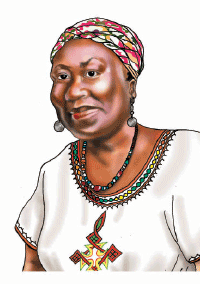It all started at the beginning of the week when a young friend, a university student, called me up to ask what my perspective was on the call by (a faction of) the NLC to embark on a nation-wide strike over the increase in the price of premium motor spirit (PMS) announced by the Federal Government. He – and he was sure several young people like him – would wish to know what my take was on the whole issue.
I probably had been hesitating to voice my position on the matter, possibly because I had not completely sorted out my thoughts on it and did not wish to make public some half-baked opinions. I just felt intuitively that this was not a protest I would feel comfortable to participate in. Now that I had received a wake-up call, as it were, from my friend, I knew I had to quickly clarify things in my own mind and get my voice out into the public domain. By the following day, I was sending out tweets, about a dozen in all, explaining why I would not be participating in this year’s anti-fuel hike protests, whereas I had travelled from Ife to be part of the demonstrations that held at the Freedom Park (Lagos) in 2012.
Basically, my explanation went, I felt that the circumstances surrounding the two protests were not the same. Prior to the 2012 protests, the Nigerian public had been treated to revelations concerning the huge scam that was the fuel subsidy regime of the previous administration. Apparently, the government was simply dashing out huge sums of money to anyone who merely presented papers, claiming to have imported such-and-such an amount of fuel into the country. I was aghast to hear the then minister of finance and coordinating minister of the economy, Dr. Ngozi Okonjo-Iweala, declare during the fuel subsidy probe conducted by the Farouk Lawan committee, that the government did not physically conduct any inspection to ascertain the delivery of the fuel which all those presenting documents claimed to have brought into the country. Our government, under the supervision of an MIT and Harvard-trained minister who was a vice president at the World Bank, was paying for goods it did not bother to see!
So, my understanding was that the fuel increase of 2012 was unfair because the federal government was trying to make innocent Nigerians bear the brunt of the incredible level of corruption which was going on under the fuel subsidy programme. This is a point that has been made by several commentators on the difference between 2012 and 2016. The current situation, according to this perspective, is completely different in the sense that the Buhari administration has found itself confronting challenges for which nobody can, in all sincerity, hold it accountable. These challenges include the global crash in the price of crude oil which has drastically reduced the government’s revenue and, possibly more importantly, the very high incidence of pipeline vandalism which has severely affected local production, thus making the country increasingly dependent on importation. Meanwhile, the loss of revenue from fuel has crippled our fuel-dependent economy, resulting in severe foreign exchange scarcity.
Just a few hours before writing these lines, I had the opportunity to discuss with a man who had worked with the Nigerian National Petroleum Corporation (NNPC) and had first-hand information regarding the extent to which pipelines were being vandalised across the country, from north to south and east to west. He made me realise how serious a challenge this evil, anti-social behaviour has become; and one just wonders what it is that drives Nigerians to this level of criminality.
I equally made it clear in my tweets that I had become increasingly concerned about the role of labour unions in our nation. While one recognises that the primary concern of unions is the welfare of their members, one is bound to wonder whether getting more money into their members’ pockets should be at the expense of the overall wellbeing of the nation. There is no doubt that Nigerian workers have always got the shorter end of the stick from successive governments, and when one considers the percentage of our commonwealth that goes into the pockets of high-level public officials, one tends to understand why unions normally assume an uncompromising stance in their discussions or negotiations with government. The National Assembly is a case in point: while the nation is in dire financial straits, the members are still insisting on buying themselves jeeps costing N38 million each; meanwhile, they express “sympathy” for the Nigerian people and call upon the government to immediately begin to implement palliatives to cushion the effect of the fuel price increase. Complete hogwash! Why do they not show real sympathy by slashing their own salaries and perquisites?
But that does not mean that Labour unions should equally not care about the development of the country. The time has come to question what real benefits have accrued to the nation from all the strikes we have had over the years. I believe that the time has come for unions to diversify their strategies; for example, more lobbying should be done to influence decisions before they are taken, rather than wait to go on strike after the deed is done. It is clear to me that the National Assembly deserves to be picketed over the goings-on there. Let us find some more creative, less destructive ways of engaging with our governments.




